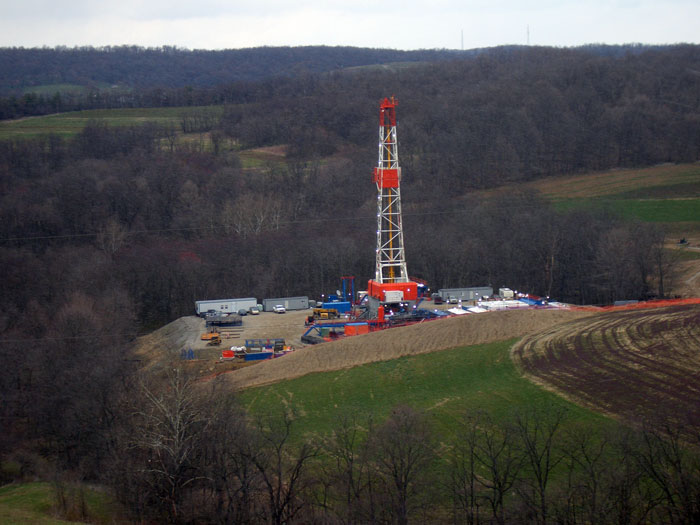86 item(s) were returned.
The burgeoning U.S. shale industry that has helped reduce natural gas prices to record low-levels now may benefit U.S. commuters and the transportation sector. Oxford Catalysts Group Plc and Sundrop Fuels Inc., backed by Chesapeake Energy Corp., are planning to build factories in the U.S. to make more affordable diesel, gasoline and jet fuel from cheap gas. This gas-to-liquids technology has proven successful at locations like Royal Dutch Shell’s Pearl GTL plant in Qatar, where gas feedstock prices are also relatively low. According to Bloomberg, with access to gas at $3.89 per mmBtu, Oxford Catalysts would be able to produce premium… [more]
View Insight2012 brought into stark relief the ways in which energy influences U.S. foreign policy. Decisions on trade sanctions in Iran, natural gas exports, and drilling for oil in the arctic are good examples of scenarios in which domestic policy goals and U.S. foreign interests were deliberated by the current administration, and a course for the country’s energy and foreign policy future was laid out. Hillary Clinton, in speaking recently at Georgetown University, highlighted the ways in which energy development and consumption will continue to be an issue facing the U.S. and its foreign policy efforts, even as the U.S. continues to… [more]
View InsightThe rapid proliferation of natural gas development has led to a variety of environmental concerns, such as air and water pollution, increased geological activity, and greenhouse gas emissions. A new paper from John Bistline, a doctoral candidate in Management Science and Engineering at Stanford University, investigates how “uncertainties in future natural gas prices, upstream methane emissions, the global-warming potential of methane, and the stringency of federal climate policy will influence optimal (GHG) abatement efforts” and the “future deployment of energy technologies.” Generating capacity decisions are made along long and largely uncertain planning horizons, and plants often come online into very… [more]
View InsightGE recently announced a line of new natural gas turbine models that offer both increased efficiency and flexibility. Traditionally, “Conventional natural-gas power plants are generally either flexible or efficient. That is, some can quickly increase and decrease power output to meet spikes or lulls in electricity demand, while others are able to hum along steadily without using much natural gas but take hours to bring up to speed,” wrote Kevin Bullis of MIT’s Technology Review. Power plants need to become more nimble as demand increases, fossil fuel prices continue to fluctuate, and more renewable energy sources are added to the… [more]
View InsightAs drought continues to affect much of the U.S., many observers are thinking critically about the water-energy nexus. A New York Times article points out the myriad ways in which water shortages can threaten energy, from low river levels reducing hydropower output, to cities banning the use of municipal water for hydraulic fracturing. Although we have yet to see water access limit our ability to produce energy, it could lead to higher energy prices, particularly for natural gas, which will increasingly require water recycling and freshwater transport from non-local sources. Biofuels will also increase in price, if crops fail and… [more]
View InsightIn an August 5th op-ed, the New York Times’ Thomas Friedman urges America to “Get It Right On Gas.” While noting domestic natural gas development’s potential to address a host of energy policy issues – the trade imbalance and job creation, greenhouse gas emissions, and energy security – Friedman quotes Energy Innovation’s Hal Harvey in asking if natural gas offers “a transition to a clean energy future, or does it defer a clean energy future?” “A sustained [natural] gas glut could undermine new investments in wind, solar, nuclear and energy efficiency systems – which have zero emissions – and thus… [more]
View InsightIn a column for the New York Times titled “There’s Still Hope for the Planet,” columnist David Leonhardt describes why investments in technology – particularly governmental investments in clean tech research and development – may be the best bet for reducing CO2 emissions, and may provide a small basis for optimism to those interested in fighting climate change. Leonhardt argues that renewable energy, which is becoming increasingly cost-competitive with traditional fossil fuels, and the emergence of natural gas as a replacement for coal, make putting a price on CO2 emissions less attractive than investment programs. “Carbon pricing is going to… [more]
View InsightA new report, produced by Battelle Memorial Institute and funded by the American Petroleum Institute and America’s Natural Gas Alliance, criticizes an EPA study plan that details a proposed agency investigation into the potential impacts of hydraulic fracturing on drinking water. The Batelle report calls for greater collaboration between industry and the EPA, and with the EPA’s study potentially informing federal drilling regulations, industry is keen to lend their voice. The report asserts that with the “industry’s extensive experience with production of oil and gas from unconventional reservoirs, its unique expertise in the process of hydraulic fracturing and associated technologies,… [more]
View InsightNew England is facing a potential shortage of liquid natural gas (LNG) after terrorist attacks on a Yemenese pipeline cancelled shipments to a Massachusetts terminal. Domestic gas could make up the shortfall, but a gas pipeline or export terminals would be needed. Currently, area power and gas companies are working to establish financing for construction of a pipeline expansion, and proposed LNG export facilities are being held up by DOE. New England’s electricity market is a complicating factor in pipeline negotiations. New pipeline capacity would require long-term contracts between suppliers and utilities, and inchoate gas and electric power market rules make it… [more]
View InsightAs Arctic ice recedes in the summer months, nations, including the U.S., are eying the region’s mineral and fossil fuel resources. The U.S. Geological Survey estimates that the Arctic holds 13 percent of the world’s undiscovered conventional oil and 30 percent of its undiscovered natural gas. Secretary of State Hilary Clinton was in Tromso, Norway, last week telling reporters“A lot of countries are looking at what will be the potential for exploration and extraction of natural resources as well as new sea lanes,” but that it was important that countries “agree on ‘rules of the road’ in the Arctic so… [more]
View Insight







